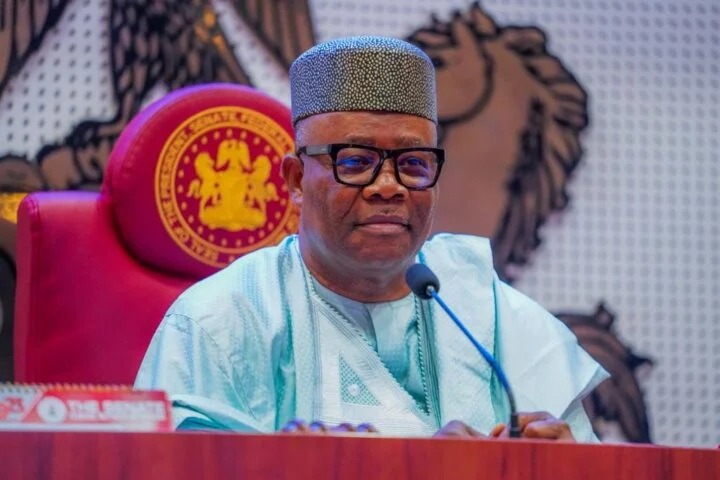Senate on Thursday approved 15 per cent from the consolidated fund as source of funding for the new created zonal development commissions by member-states.
This followed consideration and adoption of the report of Senate Committee on Special Duties on the bills establishing the commissions.
The News Agency of Nigeria (NAN) reports that the zonal development commission bills earlier passed included: South-South Development Commission Establishment Bill, 2024 and North-West Development Commission Act ( Amendment) Bill, 2024.
Others were: South-East Development Commission Act (Amendment) Bill, 2024, South-West Development Commission Establishment Bill, 2024 and North-Central Development Commission Establishment Bill, 2024.
Earlier, the lawmakers had, during the clause-by-clause consideration of the report on the bills, engaged in heated debates over source of funding for the various zonal development commissions.
Their different positions resulted in striking out of some provisions of Section 23 of the various bills.
The section had conferred operational immunity on the board and chief executives of the commissions.
The Committee on Special Duties had, in its report, recommended that 15 per cent of statutory allocations of member-states of a commission should be used to fund the commission by the Federal Government.
Lending support to the recommendation, Sen. Barau Jibrin (APC- Kano) said 15 per cent statutory allocation of member-states for funding of their zonal development commission would not result in any deduction from their statutory allocations.
“Mr President, distinguished colleagues, the 15 per cent of statutory allocation of member-states recommended for funding of zonal development commissions by the federal government is not about deductions at all.
“What is recommended is contained in the report presented to us by the committee on special duties and being considered by the senate now.
“It is that 15 per cent of statutory allocation of member-states in a zonal development commission will be used to fund the commission from the consolidated revenue fund.
“Each state has monthly statutory allocation; 15 per cent as contained in this report being considered, will be calculated by the federal government and removed from the consolidated revenue fund for funding of their development commission,” Jibrin said.
However, Senators Yahaya Abdullahi (PDP-Kebbi), Wasiu Eshinlokun (APC- Lagos) and Seriake Dickson ( PDP-Bayelsa), among others, raised concerns over the recommendation.
Yahaya specifically said the provision would lead to litigation against the federal government by the state governments, saying that no state would like its statutory allocation to be tampered with in the process of funding a zonal development commission.
“Mr President, distinguished colleagues, the 15 per cent of statutory allocations of member-states , recommended for funding of their zonal development commissions will be contested by some state governments”, he said .
President of the Senate, Godswill Akpabio, in his remarks, said the provision was in order, as constitutionally supported.
“We don’t need to be debating on whether 15 per cent statutory allocation of member-states of a commission will be deducted or not, in view of provisions of Section 162(4) of the 1999 Constitution which empowers the National Assembly to appropriate from either the Consolidated Revenue Fund or Federation Account.
“15 per cent of statutory allocation of member-states has been recommended by the senate and, by extension, the National Assembly, for funding of their zonal development commissions by the federal government; anybody who wants to go court over that may do so,” he said.
Akpabio consequently put the question on adoption of the provision for voice votes to Senators and ruled that the ‘ayes’ have it.
He, thereafter, thanked the lawmakers for spending time to consider the bills on the zonal development commissions which, he said, would serve as a pillar for the newly-created Ministry of Regional Development. (NAN)










Got a Questions?
Find us on Socials or Contact us and we’ll get back to you as soon as possible.